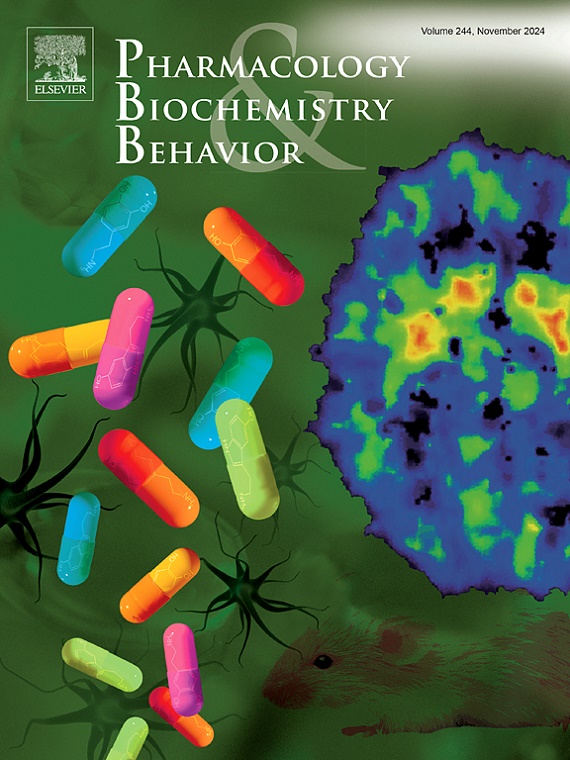Early adolescent second-generation antipsychotic exposure produces long-term, post-treatment increases in body weight and metabolism-associated gene expression
IF 3.3
3区 心理学
Q1 BEHAVIORAL SCIENCES
引用次数: 0
Abstract
The use of second-generation antipsychotic (SGA) medications in pediatric patients raises concerns about potential long-term adverse outcomes. The current study evaluated the long-term effects of treatment with risperidone or olanzapine on body weight, caloric intake, serum insulin, blood glucose, and metabolism-associated gene expression in C57Bl/6J female mice. Compared to mice treated with vehicle, female mice treated with risperidone or olanzapine gained weight at higher rates during treatment and maintained higher body weights for months following treatment cessation. High-fat diet feeding did not produce a robust difference in weight gain in previously treated vs. control groups. Finally, female mice previously treated with olanzapine also exhibited increased expression of genes associated with inflammation and lipogenesis. These findings suggest that pediatric use of SGA medications that induce excess weight gain during treatment may exert persistent effects on body weight and gene expression and such outcomes may form an important aspect of assessing risk-to-benefit ratios in prescribing decisions.
青少年早期服用第二代抗精神病药物会产生长期的、治疗后的体重和代谢相关基因表达增加。
在儿科患者中使用第二代抗精神病药物(SGA)引起了对潜在长期不良后果的担忧。目前的研究评估了利培酮或奥氮平治疗对C57Bl/6J雌性小鼠体重、热量摄入、血清胰岛素、血糖和代谢相关基因表达的长期影响。与对照组相比,接受利培酮或奥氮平治疗的雌性小鼠在治疗期间体重增加的速度更快,并且在停止治疗后的几个月内保持较高的体重。在喂食高脂肪食物的过程中,一些实验组的老鼠体重增加的速度比它们各自的对照组要快,但这一发现在不同的实验中并不一致。最后,先前用奥氮平治疗的雌性小鼠也表现出与炎症和脂肪生成相关的基因表达增加。这些发现表明,儿童在治疗期间使用SGA药物会导致体重过度增加,这可能会对体重和基因表达产生持续影响,这些结果可能会成为评估处方决策风险-收益比的一个重要方面。
本文章由计算机程序翻译,如有差异,请以英文原文为准。
求助全文
约1分钟内获得全文
求助全文
来源期刊
CiteScore
6.40
自引率
2.80%
发文量
122
审稿时长
38 days
期刊介绍:
Pharmacology Biochemistry & Behavior publishes original reports in the areas of pharmacology and biochemistry in which the primary emphasis and theoretical context are behavioral. Contributions may involve clinical, preclinical, or basic research. Purely biochemical or toxicology studies will not be published. Papers describing the behavioral effects of novel drugs in models of psychiatric, neurological and cognitive disorders, and central pain must include a positive control unless the paper is on a disease where such a drug is not available yet. Papers focusing on physiological processes (e.g., peripheral pain mechanisms, body temperature regulation, seizure activity) are not accepted as we would like to retain the focus of Pharmacology Biochemistry & Behavior on behavior and its interaction with the biochemistry and neurochemistry of the central nervous system. Papers describing the effects of plant materials are generally not considered, unless the active ingredients are studied, the extraction method is well described, the doses tested are known, and clear and definite experimental evidence on the mechanism of action of the active ingredients is provided.

 求助内容:
求助内容: 应助结果提醒方式:
应助结果提醒方式:


